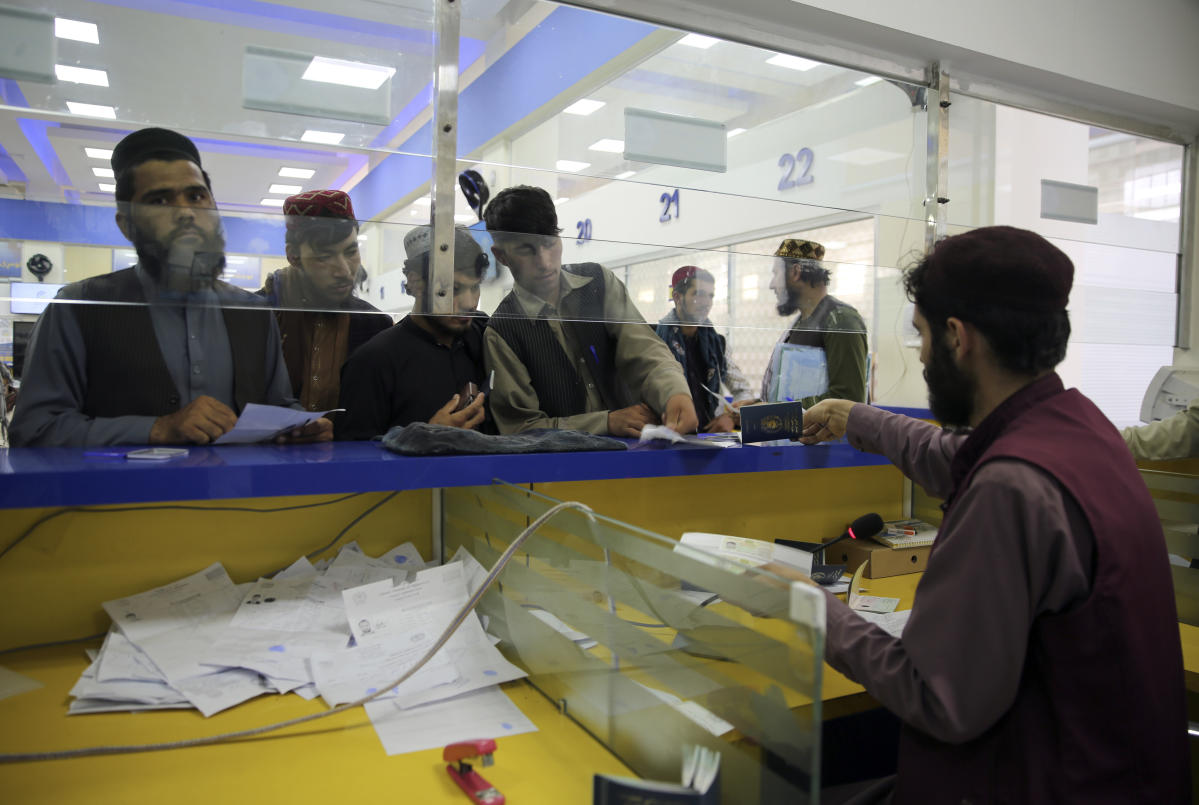KABUL, Afghanistan (AP) — In parts of Afghanistan where there are no street names or house numbers, utility companies and their customers have taken a creative approach to connectivity. They use mosques as bill and cash drop-off points, a “pay and pray” system.
Now the national postal service wants to phase it out by placing mailboxes on every street in the country, part of a plan to modernize a service that has long been plagued by bureaucracy and war.
The lofty aspirations include introducing access to e-commerce shopping and issuing debit cards for online purchases. It will be a leap forward in a country where most of the population is unbanked, air freight is still in its infancy and international couriers don’t even deliver to the capital, Kabul.
These changes mean Afghans have to pay higher service costs, a challenge given that more than half of the population already relies on humanitarian aid to survive.
The Afghan Post, like much of the country, still does everything on paper. “Nobody uses email,” says Zabihullah Omar, director of business development. “Afghanistan is a member of the Universal Postal Union, but if we compare ourselves to other countries, it is at a low level and in the early stages.”
The postal service has 400 to 500 branches in the country and is essential for completing administrative tasks such as obtaining a passport or driver’s license. It distributes up to 15,000 passports daily.
Another popular service is the certification of documents for admission to higher education or foreign institutions. The main branch in Kabul has special desks for this, along with VIP lanes and a women-only section.
Post offices in Afghanistan are vital for women who want access to services or products that they would otherwise not be able to access, as they are often not allowed into government ministries or other official buildings.
But the specter of Taliban decrees targeting women and girls also hangs in the air at the Afghan Post.
At the entrance to the main branch in Kabul, there is a sign telling women to wear the hijab, or Islamic headscarf, correctly. In one photo, a woman has a red cross over her visible face. In the other photo, a green check mark is over her face because only her eyes are visible.
One woman who visited the branch was a 29-year-old medical graduate from the western province of Farah, who gave her name as Arzo. The Ministry of Education would not let her in and instead sent her to the post office to complete paperwork.
She wanted to have her documents certified, a practical measure given the country’s precarious economic situation and the far-reaching restrictions on women and girls.
“Anything can happen at any time,” she said. “There are no jobs. There are a lot of problems.”
It was her first time using a post office. She paid 640 afghanis, or $9, for each document, calling the cost too high.
A more satisfied customer was 22-year-old Alam Noori from the eastern province of Paktika who came to pick up his passport. “Easy,” he said in English. He used to go to the post office to pick up his driver’s license.
“I got to know about the post office through social media,” he said. “People in the city use it a lot because they know about it, but people in villages and districts don’t.”
Omar, Afghan Post’s director of business development, wants to make services easier for people, but he admits this will take time.
“Most government agencies have people wandering from public service to public service, so I want to help people here, and that makes me very happy,” he said. “There is a need for a post office wherever there is a population.”
That’s where the plan to have a mailbox in every street comes in. They are used to pay bills, send mail and submit documents for processing.
But handwritten letters are disappearing, as in many other parts of the world.
Hamid Khan Hussain Khel is one of the country’s 400 postmen, who zips around the capital on a motorbike emblazoned with the bright blue and yellow Afghan Post. But he has yet to deliver a personal letter, despite serving the city’s population of five million for two years. He cited the popularity of smartphones and messaging apps.
He enjoys the work, which is less dangerous than during the decades-long conflict.
“When we meet people, their satisfaction makes us happy,” he said. “I have never seen anyone who did not smile when they received their documents.”







